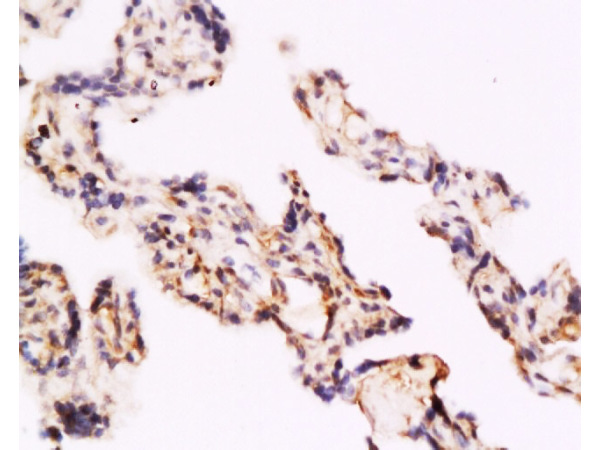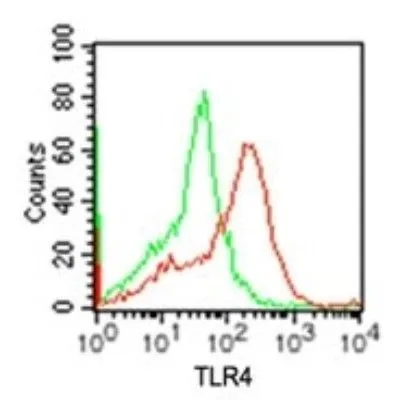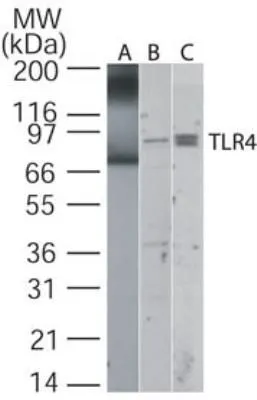![FACS analysis of mouse peritoneal cells using GTX29104 TLR4 antibody [MTS510]. Red : primary antibody Green : isotype control FACS analysis of mouse peritoneal cells using GTX29104 TLR4 antibody [MTS510]. Red : primary antibody Green : isotype control](https://www.genetex.com/upload/website/prouct_img/normal/GTX29104/GTX29104_26_FACS_w_23060722_845.webp)
FACS analysis of mouse peritoneal cells using GTX29104 TLR4 antibody [MTS510]. Red : primary antibody Green : isotype control
TLR4 antibody [MTS510]
GTX29104
ApplicationsFlow Cytometry, ImmunoPrecipitation, Neutralisation/Blocking
Product group Antibodies
ReactivityMouse
TargetTlr4
Overview
- SupplierGeneTex
- Product NameTLR4 antibody [MTS510]
- Delivery Days Customer9
- Application Supplier NoteFACS: 1 - 2 microg / 106 cells. IP: 1:10 - 1:500. *Optimal dilutions/concentrations should be determined by the researcher.Not tested in other applications.
- ApplicationsFlow Cytometry, ImmunoPrecipitation, Neutralisation/Blocking
- CertificationResearch Use Only
- ClonalityMonoclonal
- Clone IDMTS510
- Concentration0.5 mg/ml
- ConjugateUnconjugated
- Gene ID21898
- Target nameTlr4
- Target descriptiontoll-like receptor 4
- Target synonymsLps, Ly87, Ran/M1, Rasl2-8, toll-like receptor 4, Toll like receptor 4, lipopolysaccharide response
- HostRat
- IsotypeIgG2a
- Protein IDQ9QUK6
- Protein NameToll-like receptor 4
- Scientific DescriptionCooperates with LY96 and CD14 to mediate the innate immune response to bacterial lipopolysaccharide (LPS). Acts via MYD88, TIRAP and TRAF6, leading to NF-kappa-B activation, cytokine secretion and the inflammatory response.
- ReactivityMouse
- Storage Instruction-20°C or -80°C,2°C to 8°C
- UNSPSC12352203
References
- Zhang W, Lavine KJ, Epelman S, et al. Necrotic myocardial cells release damage-associated molecular patterns that provoke fibroblast activation in vitro and trigger myocardial inflammation and fibrosis in vivo. J Am Heart Assoc. 2015,4(6):e001993. doi: 10.1161/JAHA.115.001993Read this paper

![FACS analysis of RAW264.7 cells using GTX29104 TLR4 antibody [MTS510]. Red : Primary antibody Green : isotype control Black : cells without antibody Antibody amount : 0.5microg FACS analysis of RAW264.7 cells using GTX29104 TLR4 antibody [MTS510]. Red : Primary antibody Green : isotype control Black : cells without antibody Antibody amount : 0.5microg](https://www.genetex.com/upload/website/prouct_img/normal/GTX29104/GTX29104_27_FACS_w_23060722_560.webp)




